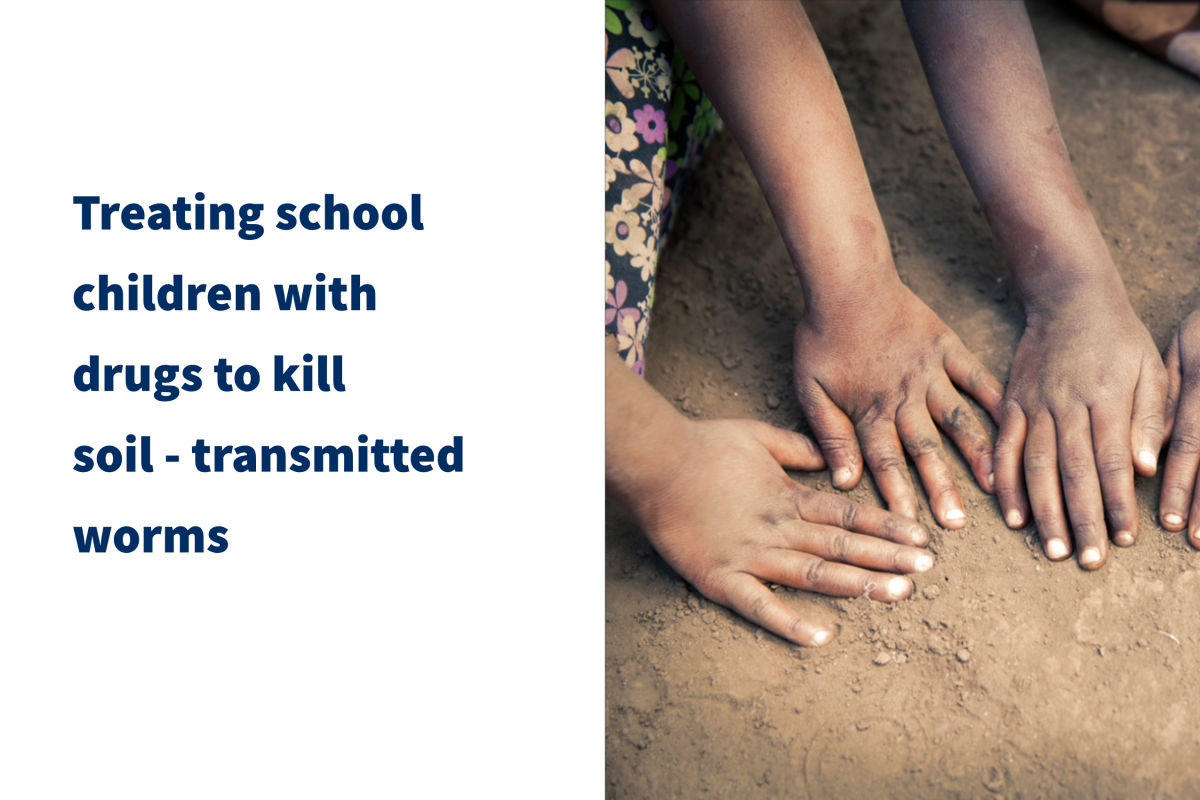
In 2015 Cochrane published a review on this topic, which has now been updated to include six new trials, additional data from included trials, and addresses comments and criticisms.
Global Advocacy organisations claim routine deworming of all school children at regular intervals with deworming drugs in areas where helminth infection is common has substantive health and societal effects beyond the removal of worms.
This interview with David Taylor Robinson, Professor of Public Health and Policy, Honorary Consultant in Child Public Health at The University of Liverpool, tells us a little more about this review.
What is deworming and why is it important?
Soil-transmitted worms, including roundworms, hookworms, and whipworms, are common in tropical and subtropical areas, and particularly affect children living in poverty where there is inadequate sanitation. The World Health Organization (WHO) currently recommends that school children in many areas are regularly treated with drugs which kill these worms. Some advocates claim such programmes improve child growth, haemoglobin, cognition, school attendance, school performance, physical fitness, and survival.
What is the history of this Cochrane Review?
A summary is given here in this Cochrane editorial which gives some of the background to this debated area. Advocates believe strongly in population wide treatment programmes but the Cochrane review finds quite substantial evidence of no benefit in terms of haemoglobin, cognition, school performance, and mortality.
How widely is periodic deworming for children living in endemic areas advocated?
Periodic deworming for children living in endemic areas has been advocated by organizations as influential as the World Health Organization, the World Bank, and the Bill & Melinda Gates Foundation, and it has been considered to be a fundamental solution to the problems associated with endemic soil‐transmitted helminth infections.
What did this update aim to do?
To summarize the effects of public health programmes to regularly treat all children with deworming drugs on child growth, haemoglobin, cognition, school attendance, school performance, physical fitness, and mortality.
The evidence of no effect presented in the 2015 Cochrane Review was firm. Is this still the case with the 2019 review?
Yes, the overall conclusions are the same. We have included data from six additional trials in the update and have addressed comments and criticisms following the 2015 version – as with the 2015 version we see substantial evidence of no benefit for haemoglobin, cognition, school performance, and mortality. For weight studies conducted in two settings over 20 years ago showed large effects on weight, but this hasn’t been shown in more recent larger studies.

Tell us more about how this update was conducted?
Cochrane researchers examined the effects of deworming children in areas where intestinal worm infection is common. After searching for relevant trials up to 19 September 2018, we included 50 trials with a total of 84,336 participants, and an additional trial of one million children.
It includes randomised controlled trials (RCTs) and quasi-RCTs that compared deworming drugs for soil-transmitted helminths (STH) with placebo or no treatment in children aged 16 years or less, reporting on weight, height, haemoglobin, and formal tests of cognition. We also sought data on other measures of growth, school attendance, school performance, physical fitness, and mortality.
What does the 2019 Cochrane Review tell us?
In populations of children living in endemic areas, the effect of the first, single dose of deworming drugs on weight is unclear. There was little or no effect in most studies, except for a large effect detected from one study area in Kenya, reported in two trials carried out over 30 years ago in a school where children were heavily infected with worms. This causes uncertainty which means we do not know if a first dose or single dose of deworming impacts on weight. For height, most studies showed little or no effect, with the exception of the site in Kenya. A single dose of deworming medicine probably has no effect on haemoglobin and cognition. There is insufficient data to know if there is an effect on school attendance, school performance, or physical fitness or mortality.
In studies where children were regularly treated with deworming medicine there was little or no effect on weight in all but two trials, irrespective of whether children were heavily infected with worms or not. The two trials with large average weight gains included the Kenya study carried out over 30 years ago, and one study from India carried out over 20 years ago in a low worm burden area where later studies in the same area did not show an effect. In trials from 2000 onwards, which are more relevant given the global reduction in worm burden, there is little or no effect. This causes uncertainty and means we do not know if regularly treating children with deworming medicine improves their weight. Regularly deworming children probably has no effect on height, haemoglobin, cognition, and mortality. We do not know if there is an impact on school attendance, since the evidence is inconsistent and at high risk of bias. There is insufficient data to know if there is an effect on physical fitness.
What criticism or comments does it address?
We addressed some detailed comments from deworming advocates which were helpful, and we included some new studies as a result of this. Also, previous criticisms concerned splitting the analysis between people known to be infected and community studies where whole populations are treated. In this update we conducted a fresh analysis considering all the data together, stratified on the basis of worm burden. We also repeated the analysis for different worm types.
What message does this review have for policy makers and those delivering public health programmes?
For public health programmes to regularly treat all children in endemic areas with deworming drugs, there is quite substantial evidence of no benefit in terms of haemoglobin, cognition, school performance, and mortality. For weight, contemporary studies do not show an effect, but unusually large effects were seen in studies over 20 years ago. We would caution against selecting only the evidence from these older studies as a rationale for contemporary mass treatment programmes.
What do you hope might happen as a result of this evidence update?
We suggest that the current evidence does not support large public health programmes of deworming in low and middle- income countries. Countries implementing such programmes should consider the findings of our updated review and make their own minds up. People developing global guidelines should be clear on what basis deworming programmes are being promoted.

